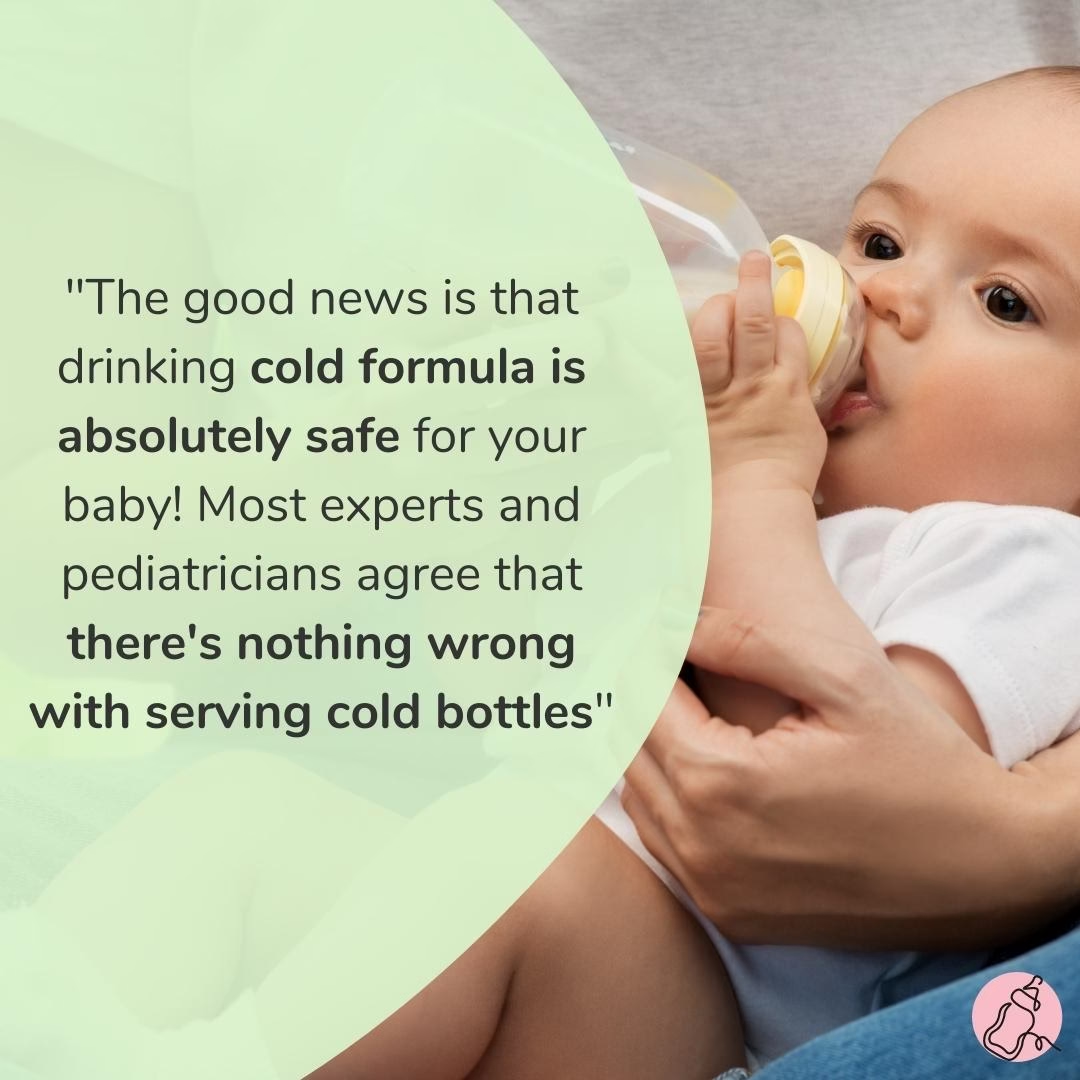Can I Feed Baby Cold Breast Milk? Myths Debunked!
Yes, you can feed your baby cold breast milk. It is safe and does not harm the baby’s health.
Breastfeeding is an essential aspect of infant nutrition, providing vital nutrients and building immunity. Many new parents wonder about the ideal temperature for breast milk when feeding their baby. While some may prefer to offer it warm, resembling the natural temperature when nursing, others find convenience and comfort in giving it cold, especially if it’s directly from the refrigerator.
Contextualizing this for Austin, Texas, where temperatures often soar, knowing whether cold breast milk is suitable for your baby can be particularly relevant. What’s paramount is the safety and comfort of your child, alongside understanding how breast milk storage and handling can impact its quality. With the right information, parents in Austin or elsewhere can confidently provide their babies with the nourishment they need in a form that works best for them.
The Cold Breast Milk Debate
Babies can drink cold breast milk without any concerns about nutritional loss. Some think that a baby must only drink warm milk, but this is not true. A baby’s preference is the most important thing. Some little ones prefer their milk warm, while others don’t mind it cold.
There are no health issues with giving a baby cold milk. Yet, parents may worry about digestive problems or colic. For babies with sensitive stomachs, cold milk might cause minor discomfort. Such cases are rare. Always talk to a doctor for any digestion issues.
Cold Milk Myths Uncovered
Many parents worry about the right temperature for baby’s milk. Some believe cold milk could be harmful. It’s time to separate fact from myth. Babies can indeed have cold breast milk. Studies show that cold breast milk is just as nutritious as warm milk.
There’s no truth to claims that cold could upset a baby’s stomach. Experts see no harm in feeding babies cold milk. The focus should be on safe storage and handling of breast milk. This ensures your baby gets the full benefits. Remember, the key is the well-being and comfort of your baby, not the milk’s temperature.
Health Insights
Parents often wonder about the best way to serve breast milk to their infants. Serving cold breast milk is perfectly acceptable and won’t compromise its nutritional value. Feeding your baby chilled breast milk can also be soothing, especially during teething.
Nutritional Impacts Of Milk Temperature
Cold breast milk offers the same benefits as warm milk. Vital nutrients remain unaffected by temperature. Babies can safely consume chilled or room temperature milk.
Dealing With Colic And Digestive Reactions
Some babies might have sensitive stomachs. In rare cases, cold milk might cause mild discomfort. Consult a pediatrician if your baby shows signs of distress. Remember, reactions to cold milk are not common.
Science Of Breast Milk Temperature
Many studies have looked at cold breast milk effects. Key findings confirm babies safely drink cold milk. Recent research suggests no harm in cold milk for babies. Nutrient levels remain stable regardless of milk temperature.
Pediatric experts support these findings. Cold breast milk is often just as good. Many professionals encourage parents to focus on safe milk handling. They urge proper storage over warming.
| Expert Opinion | Feeding Habits Suggestion |
|---|---|
| Pediatricians | Safe to give cold milk |
| Lactation Consultants | Emphasize proper storage |
| Nutritionists | Temperature does not change nutrition |
Practical Parenting
Babies can drink cold breast milk. Some moms find it easy and quick. This way, there’s no need to warm the milk, saving time and effort. You can store milk in the fridge and give it to your little one straight away.
Many babies accept milk at any temperature. This practice can be a big help for busy parents. It’s good for trips or if you’re out. Keep in mind that every baby is different. Some might not like cold milk. Others might drink it without fuss.
Listen to your baby’s needs and responses. Most importantly, check with your pediatrician if unsure. They can give advice for your baby’s specific needs.
Storage And Safety
Correctly storing breast milk is key. You should keep it in a clean container. Put this in the back of the fridge or freezer. This is where the temperature is most constant. Label each container with the date you expressed the milk. Use the oldest milk first for feeding.
For feeding cold milk, ensure it’s not expired. Cold breast milk is safe to drink if it’s been stored properly. Warming it is not necessary. Many babies will happily drink milk that is cold. Some may prefer it warmed. Always check milk temperature before feeding. It should feel lukewarm, not hot.
Professional Advice
Consulting health professionals is essential before feeding cold breast milk. Pediatricians often suggest that cold milk is safe for babies. They highlight the importance of proper milk storage and handling. Here are some key points shared by pediatricians:
- Breast milk’s nutritional value is not compromised when it is cold.
- Cold breast milk can be a soothing remedy for teething discomfort.
- Some babies might experience mild digestive sensitivities with cold milk.
- Always ensure breast milk is stored in a sterile container to maintain its quality.
Contact your pediatrician if your baby shows signs of discomfort. Each baby is unique, and what suits one may not suit another.
Frequently Asked Questions Of Can I Feed Baby Cold Breast Milk
Why Can’t Babies Drink Cold Breast Milk?
Babies can drink cold breast milk; it does not harm them or affect the milk’s nutrition. Warm milk simply mimics the natural temperature of breast milk.
Does Cold Breastmilk Upset Baby Stomach?
Cold breastmilk typically does not upset a baby’s stomach; many infants tolerate it well.
Does Cold Milk Make Baby Gassy?
Cold milk can sometimes cause gas in babies who are sensitive, but it’s not common. Consult a pediatrician if your baby experiences discomfort.
Conclusion
To wrap it up, feeding your baby cold breast milk is absolutely fine. Your little one can safely consume it without any nutritional compromise. Remember, the key is to ensure proper storage and handling of breast milk, regardless of the temperature at which it is served.
Trust your instincts and your baby’s cues. If they’re content with cold milk, there’s no reason to change that. Always prioritize safety and your child’s comfort, and consult a pediatrician with any concerns.






